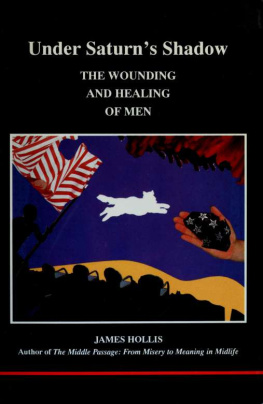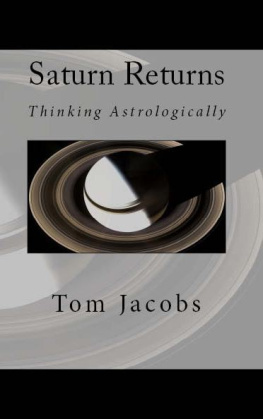This book made available by the Internet Archive.
Remember, you've come here having already
understood the necessity of struggling with yourself,
only with yourself. Therefore, thank everyone
who gives you the opportunity. GuvdiiQff, Meetings with Remarkable Men.
I
Introduction
This book derives from a talk given at the Philadelphia Jung Center in April 1992. That talk was long overdue. I had personally avoided the topic for a decade even though men's suffering, aspirations and healing had progressively occupied my time as a Jungian analyst. Twelve years ago, the ratio of women to men analysands in my practice was nine to one. Currently I see more men by a ratio of six to four. I believe this shift is replicated in the offices of other therapists, and the reasons for it have also contributed to the rise of the men's movement. I avoided the topic because so much seemed in flux. At best I saw a massive work of scholarship and emotional cleansing, at worst a pop-psych phenomenon I found distasteful.
I am very much concerned with the healing and transformation of individuals. This work is usually so intense, so deeply personal, that it is often easy to forget the larger worid and the vast social problems of which we are all a part and through which we are all wounded. But it became increasingly clear to me that the stories of individual men did overlap and present consistent motifs. As women have learned before us, I began to realize that the collective experience of men is an inescapable part of their personal history as well. The warp and woof of private history and public mythology meld into the formation of individual character.
By now, of course, there are many fine books on various aspects of the dilemma of modem men. In this book I shall draw from them at times, directly, consciously and gratefully. We are all part of the struggle toward community and each of our voices has a different ring. I do not aim to offer an original contribution to men's scholarship, but rather to take complex matters and distill them, integrate them and express them in terms that can be apprehended by many. Similarly, I draw upon the clinical experience of men in therapy. To them, also, I am grateful for permission to use their material.
The purpose of Under Saturn's shadow, then, is to offer a synop
8 Introduction
tic view of men's wounding and healing, and to examine where things stand in this last decade of the century.
But, even more, a sort of confessionI avoided speaking out on this subject for many years, not only because the issues seemed so much in transition, but because I too have suffered from living under the shadow of Saturn and am not always clear about where I stand in relationship to my own masculine nature. Fate had it that I be bom into the male gender. For many years I simply took that accident and its consequences for granted and believed it more frightening than liberating to try to step out from under the shadow. In the pages that follow, I shall cite autobiographical examples from time to time, not to indulge myself but because I think them typical and representative. As the painter Tony Berlant observed, "The more personal and introspective a work of art is, the more universal it becomes."^
In focusing on men's issues, it is not my intention to minimize the wounds of women. We of the male gender owe a deep debt of gratitude to those women who have spoken out, not only to express their own pain within our sexist culture, but also to free men to be more fully themselves. Their cri de coeur has helped men look more consciously to their own wounding, and we are all better served as a result. The example of women struggling to free themselves from the shadows of the collective gives courage and makes it necessary for men to do likewise. Unless men can emerge from darkness, we shall continue to wound women and each other, and the world can never be a safe or healthy place. This work we do, then, is not only for ourselves but also for those around us.
In the middle of the last century the Danish theologian Soren Kierkegaard observed that one could not save one's age, only express the conviction that it was perishing.^ The unconscious forces, the public institutions and ideologies that guide our lives, have such inertial momentum that one cannot hope to bring rapid change to society and its gender roles. However, the first requisite is that men be
1 Peter Clothier, "Hammering Out Magic," in Art News, p. 113. ^ The Journals of Kierkegaard, p. 165.
Introduction 9
come conscious of the fact that they are grievously wounded. The unconsciousness of their trauma causes them to repeatedly wound themselves and women as well. I often puzzle over how women could not but grow to hate men who oppress them, and almost equally how men grow to hate and fear each other.
This, then, is a book that draws on the work of many in order to bring individual men to greater awareness and to further the dialogue that must transpire for healing. The imagos consciously and unconsciously governing our lives can only be worked through in private, individual suffering, but the growing ability of men to confess their grief and rage, to participate in a growing conversation with each other, will also help to heal the world's wound.
I invite the reader to see him- or herself in the journey described here. For women, the description of the struggle with the mother complex, for example, may be useful in understanding that strange ambivalence which seems to afflict the men in their lives. The masculine journey has many passages, many perils. The rigors and tasks we can identify are those we are most likely to experience meaningfully. It is not true that what we do not know will not hurt us; indeed, what we do not know hurts us deeply and, like Samson, we may then blindly pull the temple down upon our own heads.
To bring each of us to greater consciousness of male transits and torments, I am obliged to tell male secrets. I reveal them so that women might better understand. Some of these secrets may be new to men themselves, though I seriously doubt that a single male reader of this book will disagree that they point to wounds he has carried in his own isolated and frightened heart. If we may not end the wounding, and the fear, we may at least end the isolation.
The title of this book alludes to the fact that men, as well as women, labor always under the heavy shadow of ideologies, some conscious, some inherited from family and ethnic group, some part of the fabric of a nation's history and its mythic soil. This shadow is an oppressive weight on the soul. Men labor under it, oppressed and
10 Introduction
blighted in spirit. The experience of this weighty shadow is saturnine. The definitions of what it means to be a manmale roles and expectations, competition and animosity, the shaming and devaluing of many of men's better qualities and capacitiesall lead to the crushing weight. This burden has always been there, but today men of courage are beginning to question the necessity of living under it.























